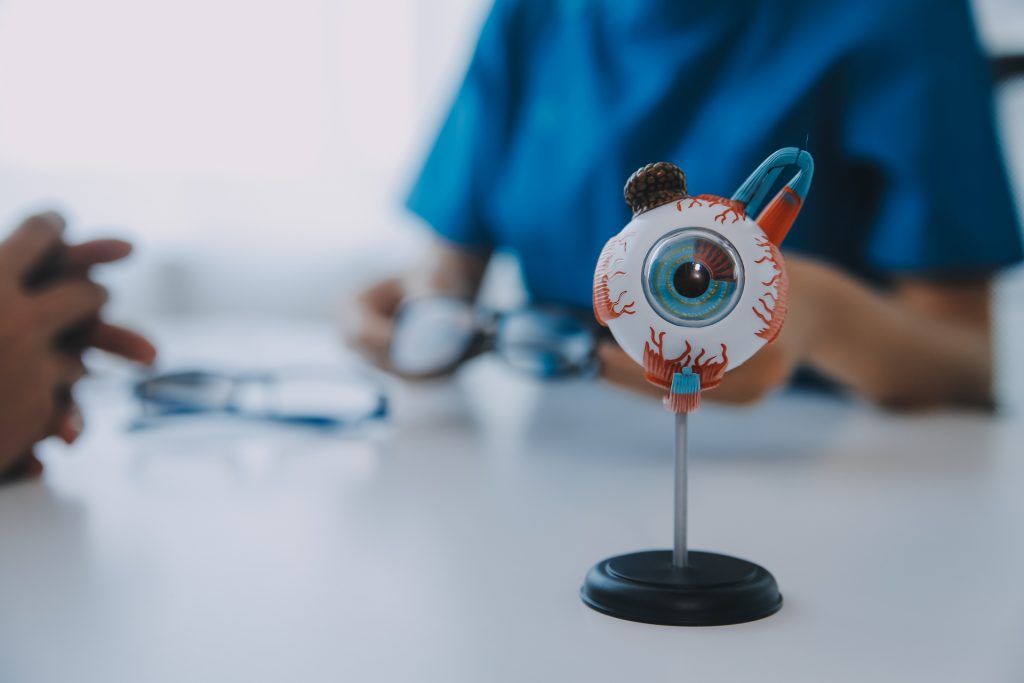How to recognize heart disease: symptoms related to the eyes
It's hard to believe, but the eyes and the heart are connected.
Cardiologists aren't the only specialists who can detect heart problems. Ophthalmologists can also sometimes determine whether their patients are at risk for heart disease. Why might your eyes be related to heart health? Like many other parts of the body, your eyes depend on your body's vascular system. So when there are problems with your blood vessels, your eyes, especially your retina, can be affected. Read on to learn how to recognize heart disease through your eyes.
MigNews reminds us that you should not take your heart health lightly. After all, your life and its quality depend on it.
The connection between eyes and heart health: what you need to know
The retina is a window into the inner workings of the body, allowing you to see in real time how efficiently and properly blood is moving through your blood vessels. If there is a problem, the retina can show changes that you can’t see in the mirror. But your eye doctor can spot them using noninvasive methods.
For example, if you’ve ever had a thorough eye exam, you’ve likely had a simple but effective procedure called a retinal scan. A retinal scan uses noninvasive optical coherence tomography (OCT) imaging to create images of the inside of your eye and how it works. These images can help your eye doctor determine not only the health of your eyes, but also the health of your entire system.
As Dr. Joseph Nezgoda explains, ophthalmologists can be the first line of defense against otherwise undetected cardiovascular problems. The doctor can take a picture of your eye to help detect cardiovascular disease earlier than previously possible, explains Dr. Nezgoda.
How to recognize heart disease with your own eyes: what to look for
 Eye stroke is a dangerous disease, Source: vecteezy.com
Eye stroke is a dangerous disease, Source: vecteezy.com
In an interview for a 2021 article in AARP Magazine, Dr. Mathieu Bachum explained why the retina is such a useful anatomical feature for detecting possible heart disease. He noted that as retinal cells die when they are deprived of blood, they “leave behind visible damage. It’s a kind of permanent mark that we call retinal ischemic perivascular lesions, or RIPLs.”
In fact, abnormalities like tiny spots on a retinal scan can tell a lot about a person's heart health. While retinal spots can appear for a variety of reasons, research suggests they may be signs of a previous ocular stroke.
Eye strokes occur when blood stops flowing normally to the structures of the eye. This causes a blockage that disrupts the normal functioning of the eye and leaves a mark. Therefore, the presence of a large number of marks may indicate that the patient needs to be examined for cardiovascular diseases. Such as high blood pressure, coronary heart disease or high cholesterol.
Again, the presence of spots on the retina is not a sure sign of an eye stroke. Things like cloudiness in the eyes can also leave them. Also, with an eye stroke, you will most likely not experience discomfort or signs like floaters, blind spots, or other vision problems. This is why it is important to get your eyes checked, even if you think your eyes are fine.
Other signs of heart disease related to the eyes
If your ophthalmologist suspects that you have had an eye stroke, you may be recommended to undergo one or more courses of treatment. For example, if the eye stroke is the result of high blood pressure, you may be considered a candidate for medications that help treat hypertension.
Your doctor can also tell you about foods you should and should not eat if you have high blood pressure. Lifestyle changes, including diet, can be a natural way to lower your blood pressure without medication. Other treatments for ocular stroke may include injections of medication, such as corticosteroids, into the eye or laser therapy.
Eye strokes aren't the only type of cardiovascular-related symptom that can indicate the presence of a more common heart-related condition. A diagnosis of age-related macular degeneration (AMD) may be a reason to get a cardiovascular screening. After all, a 2022 Mount Sinai study published in the journal Retina found a link between AMD and heart disease. Cataracts are another eye condition that may be partially linked to cardiovascular problems.
And what does it mean if you lose your vision? You guessed it. Your eyes can tell you something important about your heart. A 2022 study published in the journal Preventing Chronic Disease concluded that vision loss may be linked to cardiovascular disease. Specifically, people with vision impairment had an increased risk of high blood pressure and elevated cholesterol levels.
Some people say that mouthwash is bad for your heart. But is that true? Read here.
